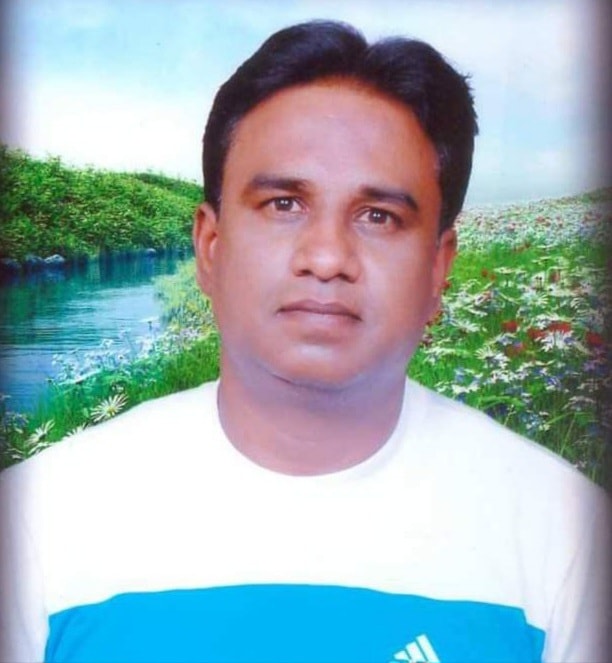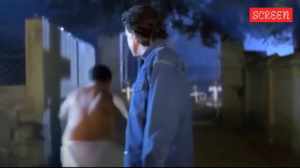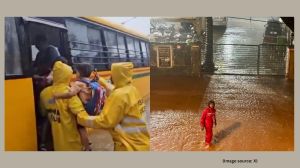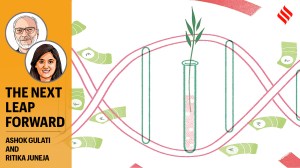June 17 is an unforgettable date in Pimpri-Chinchwad’s history. It was on the day in 1979, three people–two of them workers of Bajaj Auto Ltd–were killed in a police firing following a labour dispute. It was the first, and according to some the only, such firing in the industrial city.

Recalling the days before the police firing and its aftermath, Kavichand Bhat, a former mayor of Pimpri-Chinchwad, who is now 78 years old, said the situation when workers of Bajaj Auto had struck work demanding a pay hike remained tense for days.
“I think the strike lasted nearly five months. On June 17, there were clashes between the police and workers at the Bajaj Auto gates. According to newspapers that reported the incident the next day, the workers had overturned a police jeep and torched it. In retaliation, there was a police firing which resulted in the death of two workers and a bystander,” he said.
Story continues below this ad
The police firing incident, said Bhat, is probably the only one of its kind in Pimpri-Chinchwad in which three people were killed. “I don’t remember to date that another police firing of this kind has taken place in Pimpri-Chinchwad. Yes, in neighbouring Maval taluka, police had fired on protesting farmers some 12 years ago. But Maval is not part of Pimpri-Chinchwad,” he said.
Bhat said the workers’ strike lasted five months. “’This was another first of its kind. The workers were demanding a hike in salaries, which was common in those days. Strikes were the order of the day, but a strike lasting five months was not common. Managements used to agree to workers demands. But in this case, probably the hike sought was hefty and that is why the management could not accede to their demands,” he said.
Bhat, whose family used to live in the Deccan Gymkhana area of Pune city, moved to Pimpri-Chinchwad in 1961 after their house was submerged after the Panshet dam burst. “My parents took our entire family to Bhatnagar in Pimpri-Chinchwad. Bhatnagar was a slum area. We managed to set up a hut. My five brothers and five sisters besides our parents lived in that single ramshackle hut…We spent years living in that hut,” recalled Bhat.
 Kavichand Bhat in Bhatnagar area on Sunday. Pic by rajesh stephen
Kavichand Bhat in Bhatnagar area on Sunday. Pic by rajesh stephen
Born in the Vishrantwadi area, Bhat studied only up to Class 7 and spent much of his time doing social work in Bhatnagar and in the Pimpri area. “Through my social work, I came in contact with political leaders and then contested my first civic election, of the Pimpri-Chinchwad municipal council, in 1978. I lost by a mere 47 votes. However, my defeat did not deter me. I doubled my efforts and in the 1986 elections to the Pimpri-Chinchwad Municipal Corporation, I became a corporator for the first time, from the Bhatnagar area…All my opponents lost their deposits,” he said.
Story continues below this ad
After three years, in 1989, Bhat was elected mayor of Pimpri-Chinchwad. “I was elected from an open-category ward and became the mayor of the city from the open category,” he said.
First slum rehabilitation project
It was during Bhat’s tenure as mayor that Pimpri-Chinchwad once again found itself in the record books—it became the first city in Maharashtra to implement a slum rehabilitation project. “In 1989, the PCMC implemented the slum rehabilitation project in Bhatnagar area. It was the first such project implemented in Maharashtra as revealed by officials who attended the function where flats were handed over to people,” the former mayor said. First vertical slum rehab project which was G plus 3 that is first four-floor building project.
The slum rehabilitation project involved the construction of 1,100 flats each measuring 200 square feet. “The flats were worth Rs 38,000…Some paid the amount, many didn’t. But the PCMC didn’t mind it at that time,” he recalled. Bhat said the 1,100 flats were housed in four-floor buildings,” he said. “Today, we are seeing rehab projects in 21-floor buildings.”
Flooding in Pimpri market
The year 1989 also saw another historic event when floods hit several areas of the industrial city. “’The worst area was Pimpri, where water had even entered the vegetable market. I don’t remember that Pavana river water had ever before entered the vegetable market area…The river was in spate…The Pimpri market existed even before we shifted to Pimpri-Chinchwad in 1961,” he said.
Story continues below this ad
After the flood, several people living in low-lying areas had to be shifted to make-shift camps. “PCMC officials, political leaders and workers and activists all worked to ensure that those displaced were taken care of. It was something that had happened for the first time in Pimpri-Chinchwad, though such events have subsequently become common, especially for those living near the river,” Bhat said.
Bhat, who has been associated with the Congress, recalled a moment when Indira Gandhi had stopped for a few minutes while on way to Pune city from Mumbai. “Morarji Desai was the prime minister then and Indira Gandhi was touring across the country preparing ground for the ensuing election…I still remember that day when Congress workers handed over a bouquet to Indira Gandhi.. It was for the first time the former prime minister had visited Pimpri-Chinchwad though momentarily….It was one of those memorable moments for all of us and it gave a new energy for the Congress rank and file,” he said.
Yet another event that has remained etched in his memory is Rajiv Gandhi’s first visit to Pimpri-Chinchwad. “A huge crowd had turned up to listen to him on the Finolex Ground. I was among those who organised the event. We got an opportunity to closely interact with Rajiv Gandhi,” he said.


 Kavichand Bhat in Bhatnagar area on Sunday. Pic by rajesh stephen
Kavichand Bhat in Bhatnagar area on Sunday. Pic by rajesh stephen






